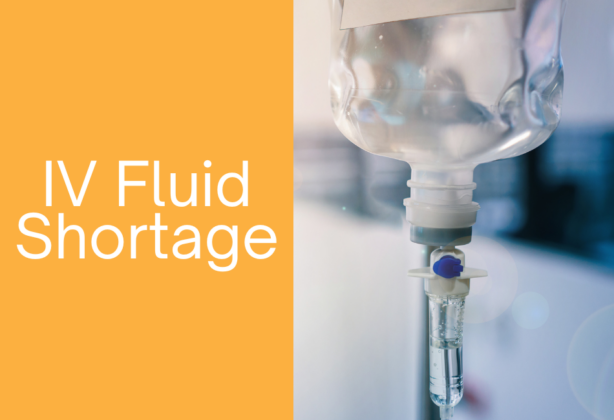Leaders at both the state and federal level are weighing in and providing updates on the shortage of IV fluids across the country, as a result from Hurricane Helene. Below is a press release distributed from Governor Noem urging the President to address the shortage. It’s followed by, the most recent health advisory from the CDC regarding the shortage.
Gov. Noem and Colleagues Urge President Biden to Address IV Fluid Shortage
Governor Kristi Noem led four fellow Republican governors in urging President Joe Biden to immediately address the shortage of IV fluid as a result of Hurricane Helene damaging the Baxter International Plant in Marion, NC, which produces approximately 60% of IV solutions used across the country. You can find the governors’ letter to President Biden here.
“Hospital and health systems across our states are employing conservation strategies and exploring alternatives to protect sound clinical care in our states. But conservation strategies have limited effectiveness and are not sustainable strategies without increased production and reliable access,” wrote Governor Noem and her colleagues.
According to the South Dakota Department of Health, many South Dakota hospitals, long-term care facilities, EMS providers, and other healthcare providers only had enough IV fluid on hand to cover their needs for 7-20 days. Since the shortage began, these facilities have typically only been able to receive 30-50% of their orders for IV fluids.
The letter highlighted the continued reliance on foreign suppliers for America’s pharmaceutical supply chain, particularly China and India, a concern that has been previously raised by Governor Noem and Republican Governors but has not been addressed by the Biden-Harris Administration.
The Governors called on President Biden to take the following specific steps:
- Collaborate with the FDA to identify international manufacturers capable of producing sterile IV solutions and their containers;
- Remove any barriers preventing the importation of sterile IV and peritoneal dialysis solutions from abroad; and
- The Federal Trade Commission and the Department of Justice should be on alert for any instances of price gouging related to this shortage.
“Rest assured that hospitals and health systems in our states have immediately implemented organization-specific action plans to conserve IV fluids and ensure patient access to care and services. We are doing our part; we request that you do yours,” concluded Governor Noem and her colleagues.
Governor Kristi Noem was joined in signing the letter by Louisiana Governor Jeff Landry, Nebraska Governor Jim Pillen, South Carolina Governor Henry McMaster, and Wyoming Governor Mark Gordon.
CDC issues health advisory on disruptions in PD and IV solutions supply due to Baxter plant closure
The Centers for Disease Control and Prevention has issued a health advisory on the supply disruption of peritoneal dialysis and intravenous solutions due to the Baxter plant closure in North Carolina following Hurricane Helene. The advisory summarizes recommendations from the Food and Drug Administration; the Administration for Strategic Preparedness and Response Technical Resources, Assistance Center, and Information Exchange; the American Society of Health-System Pharmacists; the American Society of Nephrology; and the American Society of Pediatric Nephrology, among others, about addressing supply disruptions to PD and IV solutions.




